World War One: The boozy parties of Armistice Day
- Published
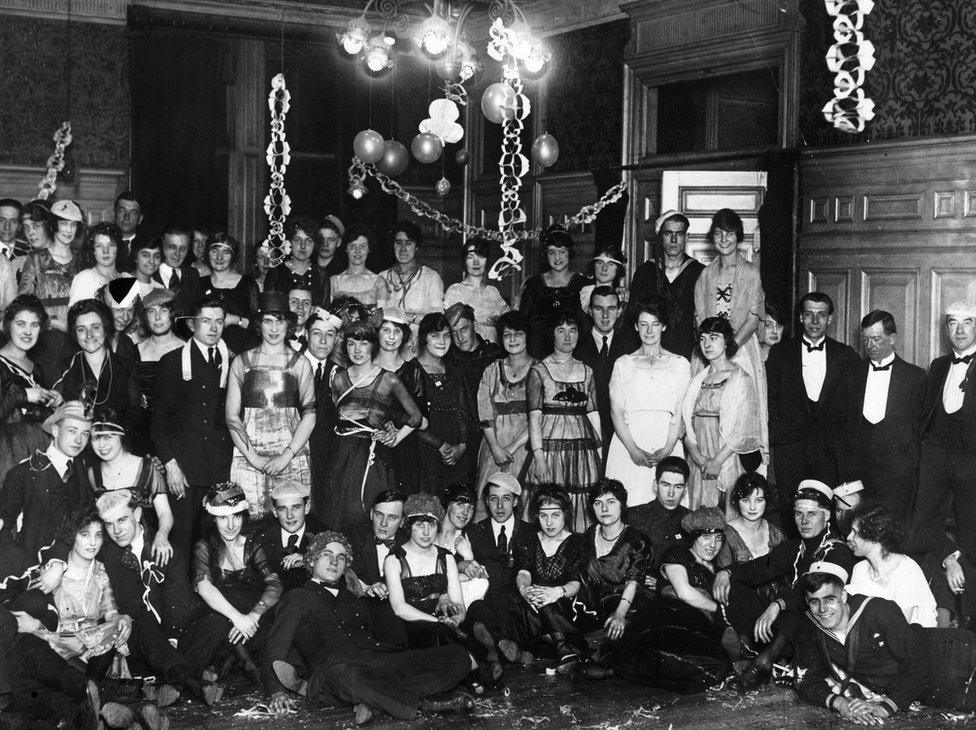
As the UK remembers the 100th anniversary of the end of World War One, commemorations will focus on those who fought and died. But Armistice Day wasn't always so sombre.
At 11:00 on Tuesday 11 November 1919, ex-service personnel, relatives and friends of the dead and millions of others gave thanks for the sacrifices of the Great War.
A year after the conflict had ended, villages, towns and cities held parades, church services and observed two minutes' silence.
That was during the day. The evening of 11 November was different. Thousands of people - most of them young - wanted to have fun.
"Victory balls" - charity fundraising events involving fancy dress, dancing, singing and copious drinking - were held to cater for this need.
Pathé footage of the biggest ball that year, held at London's Royal Albert Hall,, external shows partygoers in costumes including turbans, doublets and hose, and a stars-and-stripes dress. One imperious-looking woman poses as Britannia.
"These events often had a celebratory air about them, as soldiers wanted to mark the fact that they had lived through the war," says Chris Kempshall, teaching fellow in modern European history at the University of Sussex.
"They celebrated with their comrades and marked the sacrifices of their fellows by living and enjoying their own lives."
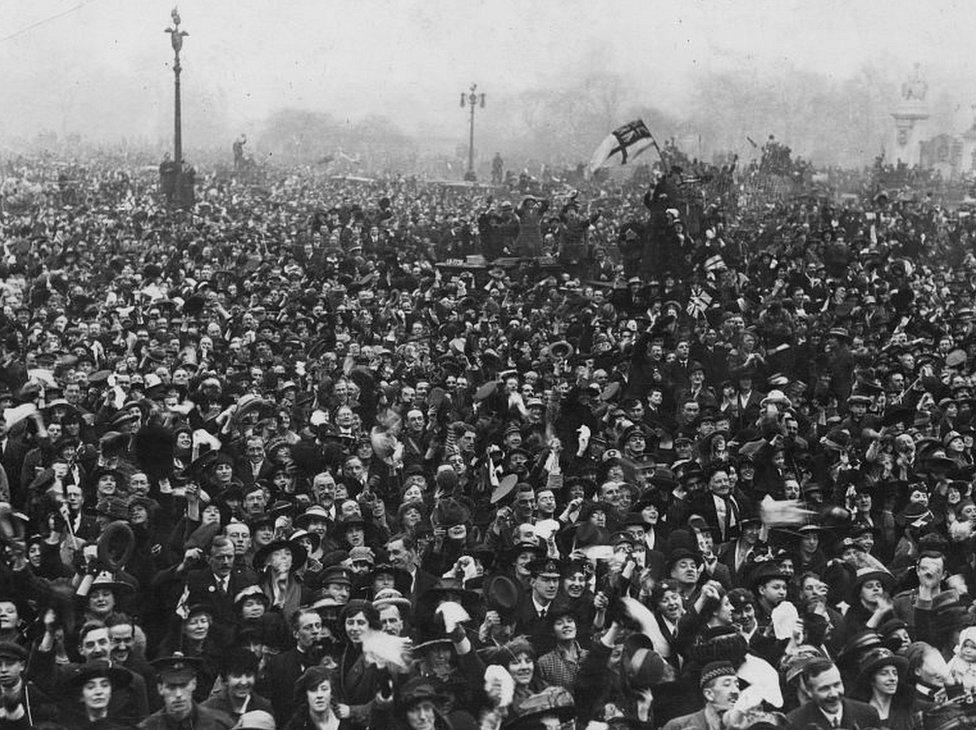
The 1918 Armistice saw mass celebrations in the UK
The balls continued, raising money for veterans and charities.
Victory Dance, a poem by the writer and academic Alfred Noyes published in 1920, showed disgust at the frivolity on show:
Shadows of dead men
Stand by the wall,
Watching the fun
Of the Victory Ball.
But any criticism remained muted until, on 19 October 1925, the Times newspaper published a letter from Richard "Dick" Sheppard, vicar of St Martin-in-the-Fields Church, central London.
He called for the annual Albert Hall ball to be cancelled.
"Dancing is frequently the obvious and fitting form of gratefully commemorating a glad event," he wrote, "but a fancy dress ball on a vast scale as a tribute to the Great Deliverance which followed on the unspeakable agony of 1914-1918 seems to me not so much irreligious as indecent."
Sheppard, who had been chaplain to a military hospital in France during the war, argued that balls and similar "thoughtless and ill-conceived" celebrations in hotels and restaurants "should not be encouraged, at least while this generation retains the heartache of a tender and thankful remembrance".
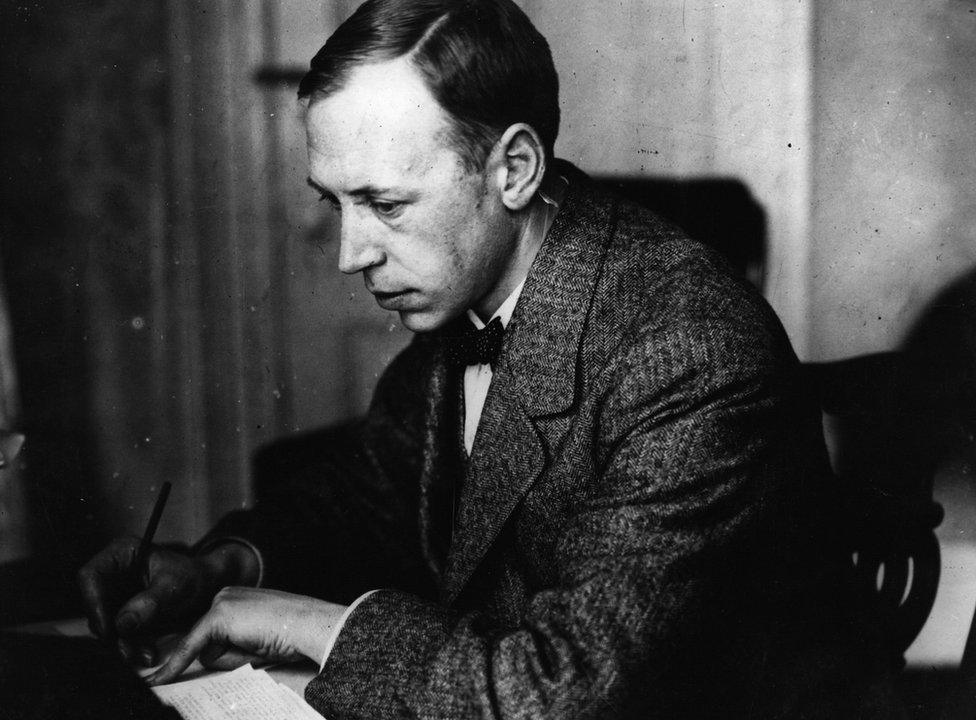
Alfred Noyes was an early critic of Armistice balls
The Times was inundated with letters agreeing or denouncing Sheppard as a killjoy.
One contributor, described as "Company Commander", argued that, as the sole survivor of four brothers, "the last thing that they would wish is that they should stand in the way of our enjoying ourselves".
But another contributor, Roger Lawrence, agreed with Sheppard, saying a fancy dress ball was "grotesque" and a "piece of vulgarity".
The popular press, sensing the value of the controversy, took it further. The Daily Mail campaigned for the balls to end for fear of offending the bereaved. It claimed upper-class socialites, some of whom had not served, were enjoying themselves at the expense of the fallen.
However, the Daily Express, engaged in a sales war with its rival, championed the rights of veterans to have a good time and relive their camaraderie, having risked their lives in war.
The Archbishops of Canterbury and York took the same position as the Mail.
Eventually the Albert Hall Victory Ball's organiser, Lord Northampton, gave in to the appeals, postponing it to 12 November. For 11 November, existing ticket holders could attend a service of remembrance - conducted by Sheppard.

Who was Richard "Dick" Sheppard?
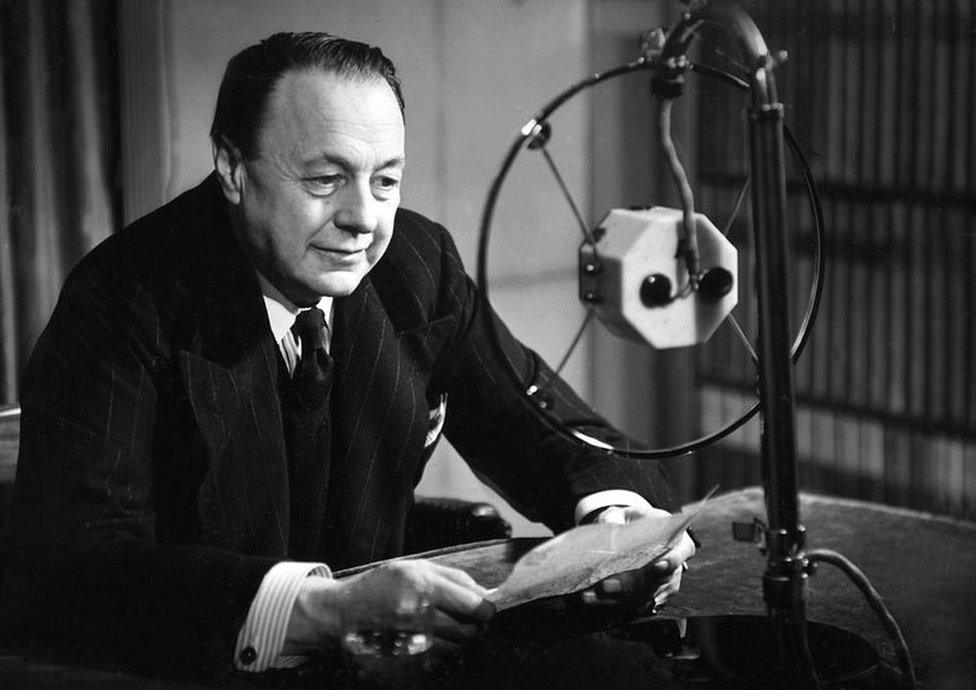
Born in Windsor in 1880, Sheppard volunteered for service in the Second Boer War, but was injured on his way to the train station, leaving him unable to serve and disabled for life
He took part in the BBC's first religious broadcast, in 1924, but had to stop work on the radio in 1926 because of asthma-related problems
In 1927, he announced his conversion to pacifism
After Sheppard died in 1937, 100,000 people filed past his coffin

The number of balls dwindled during the late 1920s, when Armistice Day began to take on the more or less entirely sober character it has today.
One former officer stopped taking part in commemorations, describing them as "too much like attending one's own funeral".
"Set against the sombre nature of these moments is the fact that, in reality, 88% of British soldiers survived the First World War," says Dr Kempshall, "and they wanted to be able to undertake their own commemorations and activities in the light of that fact."
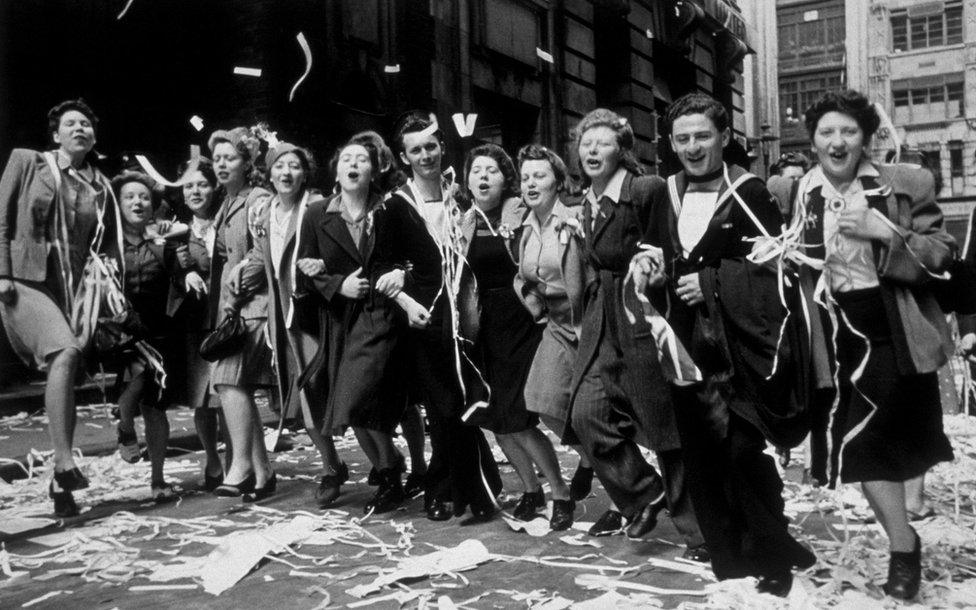
VE Day is remembered for its party atmosphere
The debate during the 1920s must be seen in the context of society at the time, argues Elisabeth Shipton, author of Female Tommies: The Frontline Women of the First World War.
"With a rise in pacifism and growing austerity, parties with alcohol, dancing and excess were felt to be increasingly inappropriate," she says.
"Furthermore, was it a 'victory' given such a large of loss of life?"
Around 750,000 UK military personnel died during World War One. But, while almost 400,000 UK service personnel died during World War Two, commemorations of Victory in Europe (VE) Day have a far jollier tone, dancers and actors re-enacting famous scenes of the street celebrations of 8 May 1945.
What is sometimes forgotten is that UK cities also saw spontaneous parties when the Armistice was announced on 11 November 1918. Thousands massed outside Buckingham Palace, as in 1945.
Yet the differences in commemoration continue.
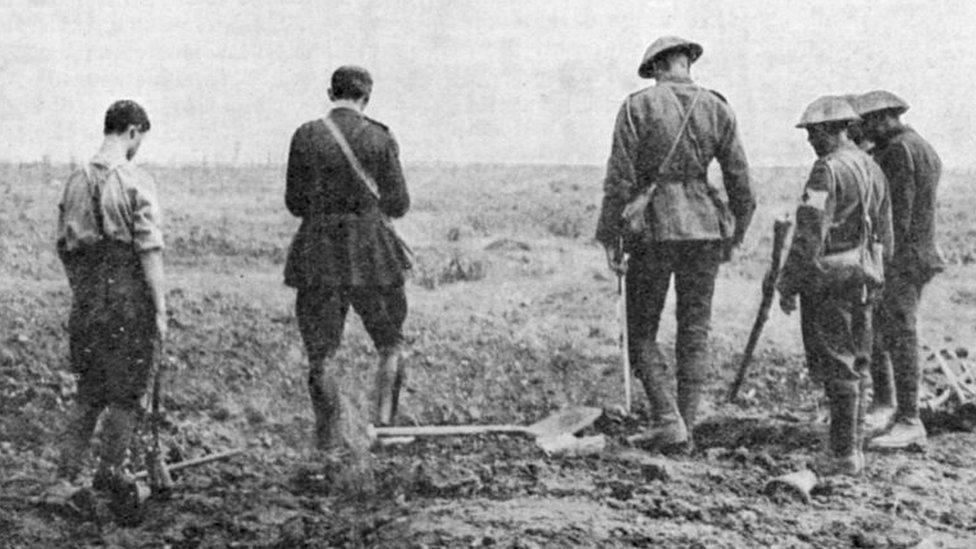
"The two world wars set the tone for how we understand and rationalise wars in this country," says Dr Kempshall.
The crimes of the Nazi Reich make it easier to see the opponent as "clearly 'evil'", while much of the popular memory of World War One is of "mud, blood, trenches and incompetent generals", he adds.
World War One "appeared to be less conclusively resolved", meaning it "has a huge impact in how we talk about modern wars like Iraq and Afghanistan which have mixed outcomes and, at times, limited popular support".
Charity-supporting balls, held on or around 11 November, are making a slight comeback in the UK, US and around the Commonwealth, notes Ms Shipton.
But Sheppard's view of Armistice Day, shaped by his time tending to wounded and dying soldiers on the Western Front, continues to dominate.